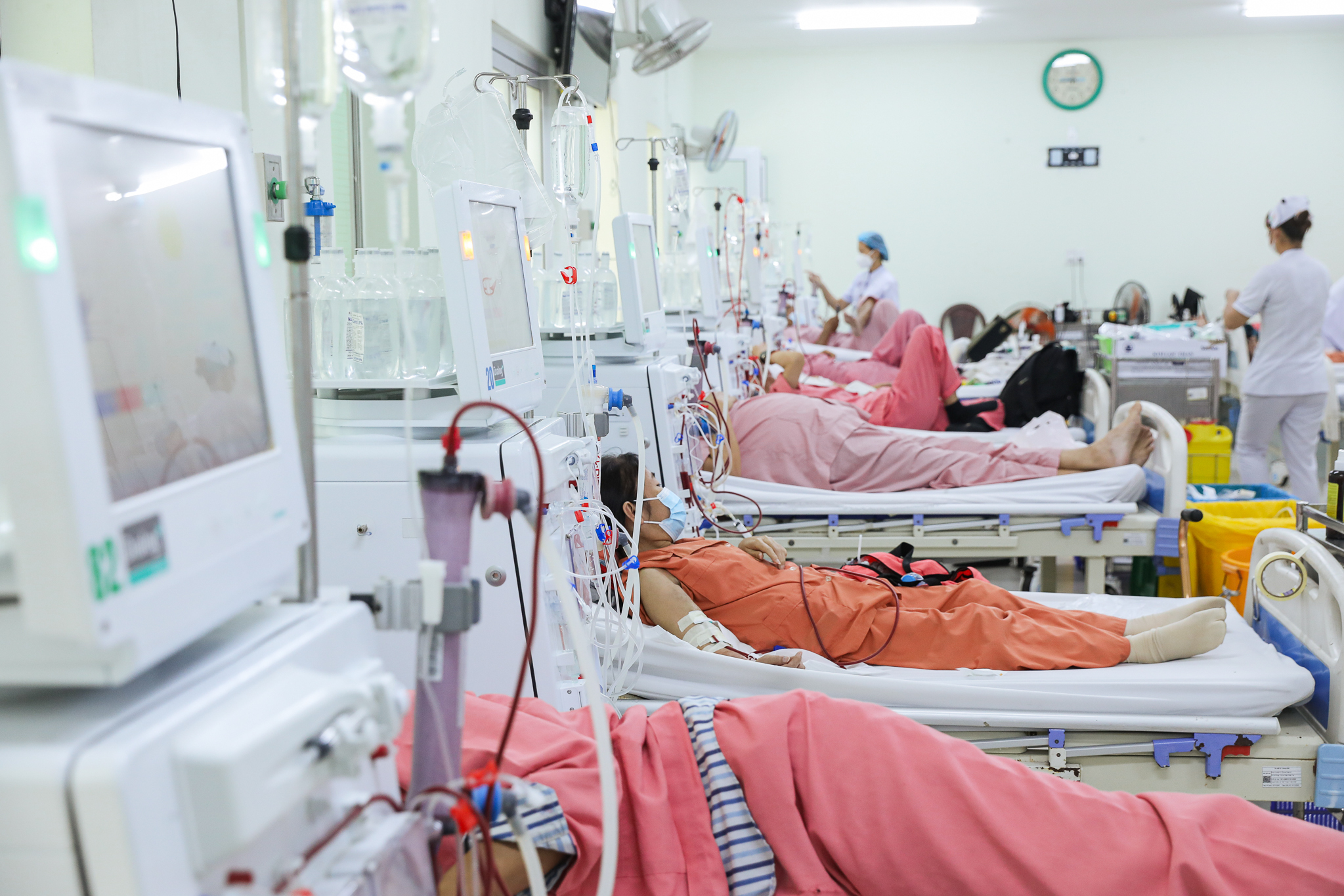Chronic kidney disease (CKD) affects nearly 850 million people worldwide and is currently the third fastest-growing cause of death globally. In Vietnam, more than 10 million people have the disease, accounting for 10.1% of the population. Death from chronic kidney disease ranks 8th among the top 10 causes in the country.
Dr. Chu Thi Dung, from the University of Medicine and Pharmacy Hospital in Ho Chi Minh City - Facility 3, said that work stress is one of the leading causes of chronic kidney disease in Vietnamese people today. In modern life, many people have to work long hours at high intensity, constantly under pressure of time, performance, and responsibility.
When stress occurs, the body activates the stress response system. The adrenal glands secrete cortisol, a hormone that helps mobilize energy, regulate metabolism, and fight inflammation. Cortisol is essential in the short term, but when elevated for long periods, it becomes harmful to health. The kidneys are one of the organs most significantly affected.
When this condition persists, the glomerular filtration membrane is easily damaged, the renal interstitium is at risk of fibrosis, and kidney function gradually declines. Long-term follow-up studies show that people with high levels of psychological stress experience a faster decline in estimated glomerular filtration rate (eGFR) compared to those with less stress, even after eliminating the effects of hypertension and diabetes.
 |
Kidney patients undergoing dialysis at Cho Ray Hospital, Ho Chi Minh City, 3/2024. Photo: Phung Tien |
In people who already have chronic kidney disease, hypothalamic-pituitary-adrenal axis disorders and mild cortisol excess are common. Studies show that chronic kidney patients have cortisol circadian rhythm disorders, reduced ability to eliminate and accumulate this hormone, leading to higher rates of heart disease and death.
According to traditional medicine, prolonged mental stress directly affects the Kidney and Liver organs. The Kidney is the root of yin and yang of the whole body, storing essence and governing water. When vital energy is depleted due to stress, the body can fall into a state of kidney yin deficiency or kidney yang deficiency. Long-term kidney yin deficiency produces internal heat, consuming body fluids and causing damage to blood vessels in the kidneys.
Conversely, kidney yang deficiency reduces the ability to transport and transform fluids, leading to the accumulation of water and toxins in the body. Both of these conditions, if not addressed, will weaken kidney function, easily progressing to chronic kidney failure.
In addition to hormonal factors and pathological mechanisms, a high-pressure work environment often leads to unhealthy habits such as lack of sleep, consuming a lot of processed foods, high coffee or stimulant intake, low water intake, and lack of exercise. These factors not only maintain high cortisol levels but also increase blood pressure, blood lipid disorders, and blood sugar – all risk factors for chronic kidney disease.
Paradoxically, according to some studies, up to 90% of people with chronic kidney disease in Vietnam are unaware they have the disease. This reality allows the disease to progress silently for years, even decades, until kidney function is severely impaired and dangerous complications such as heart failure, stroke, anemia, and osteoporosis appear. At this stage, treatment becomes complex, expensive, and significantly less effective.
Faced with the rapidly increasing prevalence of kidney disease, especially among young people, becoming a worrying health issue, the World Health Organization (WHO) passed a global resolution on kidney health at the 78th World Health Assembly in May. This opens up opportunities for countries to strengthen prevention and treatment of this disease.
The main content of the resolution recognized kidney disease as a growing global public health problem, integrating kidney care into national health strategies, promoting prevention as well as early screening at the primary healthcare level.
According to health experts, the passage of the resolution will create a basis for Vietnam to build a national program to combat kidney disease, increase budget investment in primary healthcare, dialysis equipment, kidney transplants, and promote community communication about a healthy lifestyle and regular health check-ups.
"The WHO's historic resolution is a golden opportunity for Vietnam to shift from 'treating when it's too late' to 'preventing early', protecting the health of millions of people," said Dr. Dung.
To reduce the risk of kidney damage in a high-pressure environment, health experts advise people to maintain 7-8 hours of sleep per day, exercise moderately, follow a low-salt diet, limit sugar and saturated fat, and drink enough water. Regular health check-ups with creatinine, eGFR tests, and urine protein checks can help detect potential damage early.
Traditional medicine can be combined with methods such as health cultivation, massage and acupressure, or using remedies to nourish kidney yin or warm and tonify kidney yang, suitable for each individual's condition, to regulate qi and blood, reduce stress, and support kidney function.
My Y












